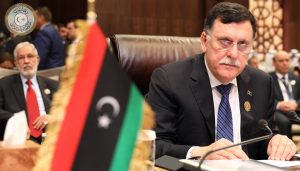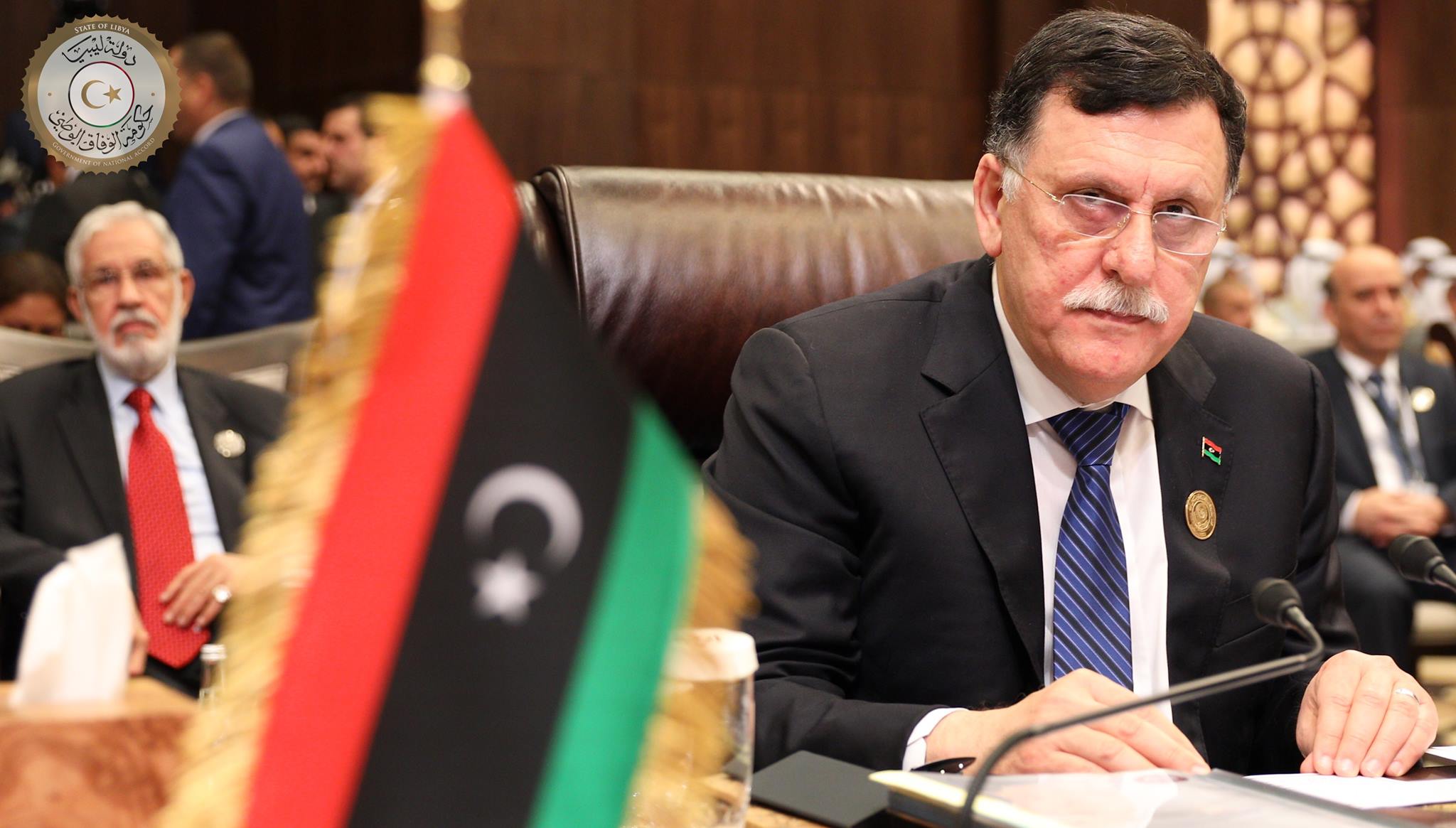By Maha Ellawati.

Amman, 29 March 2017:
Arab leaders meeting at the Arab Summit in Jordan have given their “absolute” support for the Presidency Council (PC) and indicate that they will drop any links with the Beida-based interim government headed by Abdullah Al-Thinni.
The support for the PC, its government of national accord (GNA) and the Libyan Political Agreement (LPA) will be included in the summit’s final statement, Libyan sources at the summit said. The statement will also call on the country’s military entities to join in a single body.
In speeches from the various Arab leaders at the summit there was consistent backing for Libya and the PC.
Qatar’s emir said that there could not be another dictator in the country, as did Egypt, while Kuwait’s emir called for the GNA to have full control oevr all Libya. From King Salman of Saudi Arabia, there was an appeal to Libyans to renounce violence while Egypt’s President Abdel-Fatteh El-Sisi said that they needed to support the LPA.
In his speech today thanking Arab leaders for their support, and in particularly those of Egypt, Algeria and Tunisa for their efforts to solve the Libyan crisis, PC leader Faiez Serraj criticised both the House of Representatives and the Libyan National Army (LNA) led by Khalifa Hafter – the former for refusing to accept the PC’s legitimacy and the latter for alleged war crimes in Bengahzi.
“We strongly condemn the recent violations in some areas of Libya with the exhumation of graves and the mutilation of the dead, especially those who claim to be members of the regular military forces,” he said.
He was referring to the apparent exhumation and mutilation of the corpse of Islamist leader Jamal Makhzoum in Benghazi a fortnight ago by members of the LNA.
In contrast, Serraj saluted the Bunyan Marsous operation on its victory against the forces of the so-called Islamic State in Sirte.
Declaring his commitment to provide for the basic needs of Libyans throughout the country “without exception” and to respect human rights, he called on them to accept a civilian leadership which was committed to the separation of powers. As for those who believed that there could be a military solution to Libya’s problems, they were wrong, he stressed. There would be no winners in a military fight, only losers.
He also said that his government would in future take a firmer line against anyone who undermines the country’s wealth, its interests or its future.
As to the problems of illegal migration and the spread of terrorism, they were in part caused by the country’s southern porous borders, he said, but he also called on the international community not to focus completely on them, but also to consider the suffering of ordinary Libyans. It had to translate its promises of support into action, not just statements about it.
Even so, despite the clashes and security concerns, life in Tripoli was in the main relatively normal, he insisted.
On wider Arab issues, Serraj said that his government was fully committed to the Palestinian cause and the right of the Palestinian people to establish an independent state with Jerusalem as its capital. Likewise, Libya supported all the resolutions adopted by Arab summits on Syria, Iraq and Yemen.
The final summit statement is also expected to state the same, but also talk of the need to fight terrorism in all the three countries.







